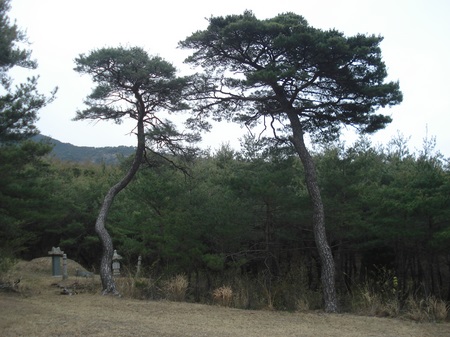After yesterday's excursion to Seoul, I felt really exhausted today for some reason. I think I'm not sleeping well. The weather has reached that continuously hot and humid aspect of the high Korean summer, but it's been a remarkably un-monsoony, dry summer (after what seemed like a wet, monsoony spring). Supposedly, rain is forecast, but it's been forecast a lot with not much actual rain.
Anyway, I feel very tired. I had a number small, annoying failures today that added up to a bad day. Monday is a dense schedule of classes on the current arrangement.
What I'm listening to right now.
N.A.S.A., "The People Tree" (feat. David Byrne, Chali 2na, Gift Of Gab, & Z-Trip).
I've blogged this song before, but at the time I didn't post the lyrics, which I was listening to more carefully today as I heard it, walking to work. I think it's a pretty interesting song, and pretty complex collaboration of a diverse group of artists that works out well.
Lyrics.
Intro
With the N.A.S.A. team, we will take you bodly where no man has ever gone before.
We will take you back some fifteen billion years to the beginning of time.
Verse (Chali 2na)
Yo! From a drop of blood to bones and body parts
To vital organs form and your brain and tiny heart
Your fetus, date of birth, til puberty finally starts
Adolescence, adult, then your elderly body rots
It was devine decree that begun the plan
But it's disease by the greed of the sons of man
Who try to lead with their guns in hand
Understand God's the one that command…
Pre-chorus (David Byrne)
Did we climb out of the sea?
Where did we come from you and me?
Two legs to walk and eyes to see
Am I the man I want to be?
Chorus (David Byrne, The Crack Alley Children's Choir & Gift of Gab)
People grow in my back yard
In my garden, in my heart
Pink and purple, red and blue
On this sunny afternoon
Verse (Gift of Gab)
Back before time was time and space was space
The ever present I divine so laced with grace
Decided it was time to try to chase the taste
To what it was designed, now life is taking place
Within it' self-divided, now it takes some space
They can't be fathomed by a mind creates the state
Of ego now what's is mine, is mine, ok now hate
We'll reign until the blind have eyes and they awaken…
Pre-chorus (David Byrne)
Planting the seeds in the ground
How is my garden growing now?
A tender kiss, a little smile
The way a mother holds her child
Chorus (David Byrne, The Crack Alley Children's Choir & Chali 2na)
Tasty little human beings
I grow them on the people tree
I will eat them one by one
If there's enough for everyone
Bridge (GIft of Gab and Chali 2na)
Oh, unending ever flowing life beyond the birth
Tell me what the purpose is for creating the earth
Mainly we created the planet as man's habitat
Be fruitful and multiply across the planet's back
But why does hate exist, the war and AIDS and shit?
It we're to be fruitful, why can't poor people pay they rent?
Cause love and hate, both sides are conjoined
Physical forms have to deal with both sides of the coin
Why do we die?
So you can live
Why do we strive?
So you can win
But why do you defy every truthful word I recommend?
My question back is: Why do you recommend then throw temptation in?
So I can test you patience and tolerance in the face of sin
But why a test when you hold all the answers to the state we in?
For you to bear witness to imperfections of mortal man
So it's a lesson?
And a blessing journey back to where you've been
Cause before the tree can flourish, seeds must first be planted in!
Chorus (David Byrne, The Crack Alley Children's Choir & Gift of Gab)
People grow in my back yard
In my garden, in my heart
If you like my garden, you might like me
Underneath the people tree
Outro
Getting closer to God!
Getting closer to God!
Call upon your God!
Closer to God!
He'll answer your question!
Closer to God!
God said I trust you!
Behold!
Who are you?
I'm God muthafucka and I'm not who you thought I was!
They better be giving me all the respect
All y'all, all y'all, all y'all, all y'all check yo self!
Cause I'm God!
Hello hello hello hello
Feel me, feel me, feel me all you
[daily log: walking, 5 km]

